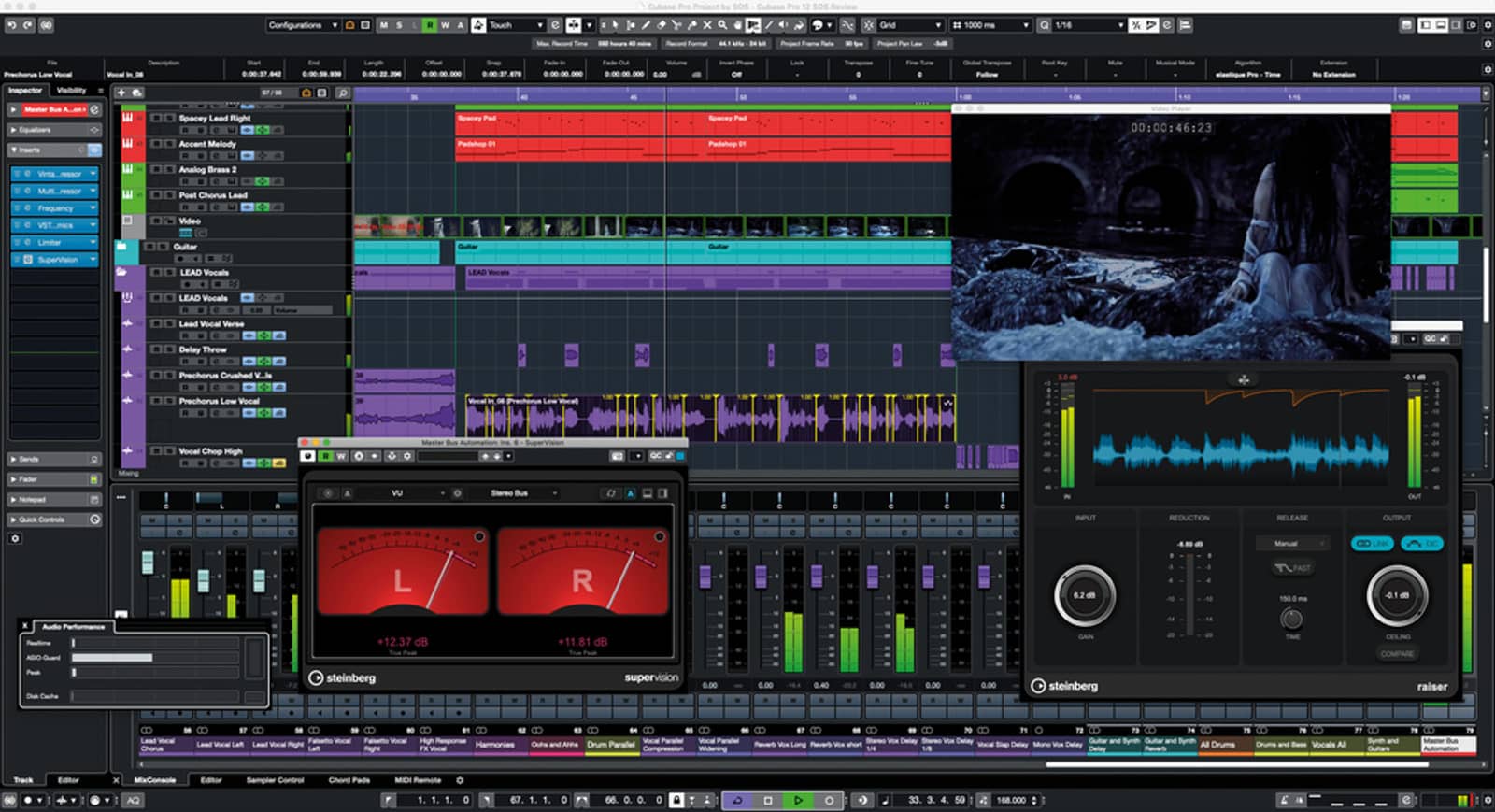As an avid music producer and laptop enthusiast, I understand the unique needs and preferences that come with finding the best laptop for Cubase Pro 12. This powerful digital audio workstation (DAW) demands high-performance hardware and seamless integration to ensure a smooth and productive workflow. In this guide, I'll be sharing my insights and experience to help you make an informed decision when selecting the ideal laptop for your music production journey.
In my extensive review process, I've analyzed a comprehensive spreadsheet of the latest laptop releases, comparing specs, professional and user-generated reviews, as well as Cubase Pro 12 specific requirements. This allows me to identify the top laptops that cater to the diverse needs of music producers, ranging from those seeking portability and affordability to those who prioritize raw power and advanced features.
To successfully run Cubase Pro 12, it's crucial to focus on key components such as a fast processor, ample RAM, and sufficient storage. Additionally, the importance of a high-quality display and a comfortable keyboard should not be overlooked, as these features significantly impact the overall user experience. By considering these factors and the unique demands of this professional-grade DAW, this guide will help you identify the best laptop for Cubase Pro 12 that aligns with your personal preferences and budget.
Processor Power
The laptop CPU market has recently seen quite a few changes. Apple has released their own ARM-based M1, M1 Pro, M1 Max and M2 system-on-chip modules, which offer exceptional single-core performance and battery life. AMD has managed to take 20% of the CPU market and has released the 6th generation Ryzen processors. We're still waiting for Intel's 13th-gen processors to reach laptops, where 12th generation is Intel's latest. Both Intel's and Apple's silicon chips adopted hybrid performance/efficiency core design (based on big.LITTLE). Ryzen models are best if you need a good battery life in a PC laptop.
If you're looking for a MacBook, then you can ignore the rest of this guide; MacBooks are a popular choice for audio engineers due to their excellent audio performance and long battery life. Since most DAWs are not particularly well-optimized for multi-core CPUs, I'd suggest going for an i5 or i7 H-series processor if you need a laptop that will last you a few years. While I'd love to recommend AMD's latest Ryzen processors, they're still not competitive in terms of power efficiency, so I'm not going to recommend them unless you're on a tight budget.
To make an informed decision, I always like to use benchmarks. I use Cinebench R23 as it's more relevant than R20 (which is still used by some reviewers). Generally speaking, an i5 processor should give you a good performance for Cubase Pro 12, with the i7 being the best option. If you want the best possible performance, consider getting an ultrabook with an H-series processor; these laptops have better thermals but shorter battery life (around 4 hours).
Below is a table of recommended processors by price range and my laptop recommendations:
| Processor | Price Range | Recommended Laptop |
|---|---|---|
| Intel i3-1115G4 | Budget | Dell Inspiron 15 3000 |
| Intel i5-10310U | Mid-range | HP Envy 15 |
| Intel i7-1180G7 | High-end | ASUS ZenBook Pro Duo |
GPU Power
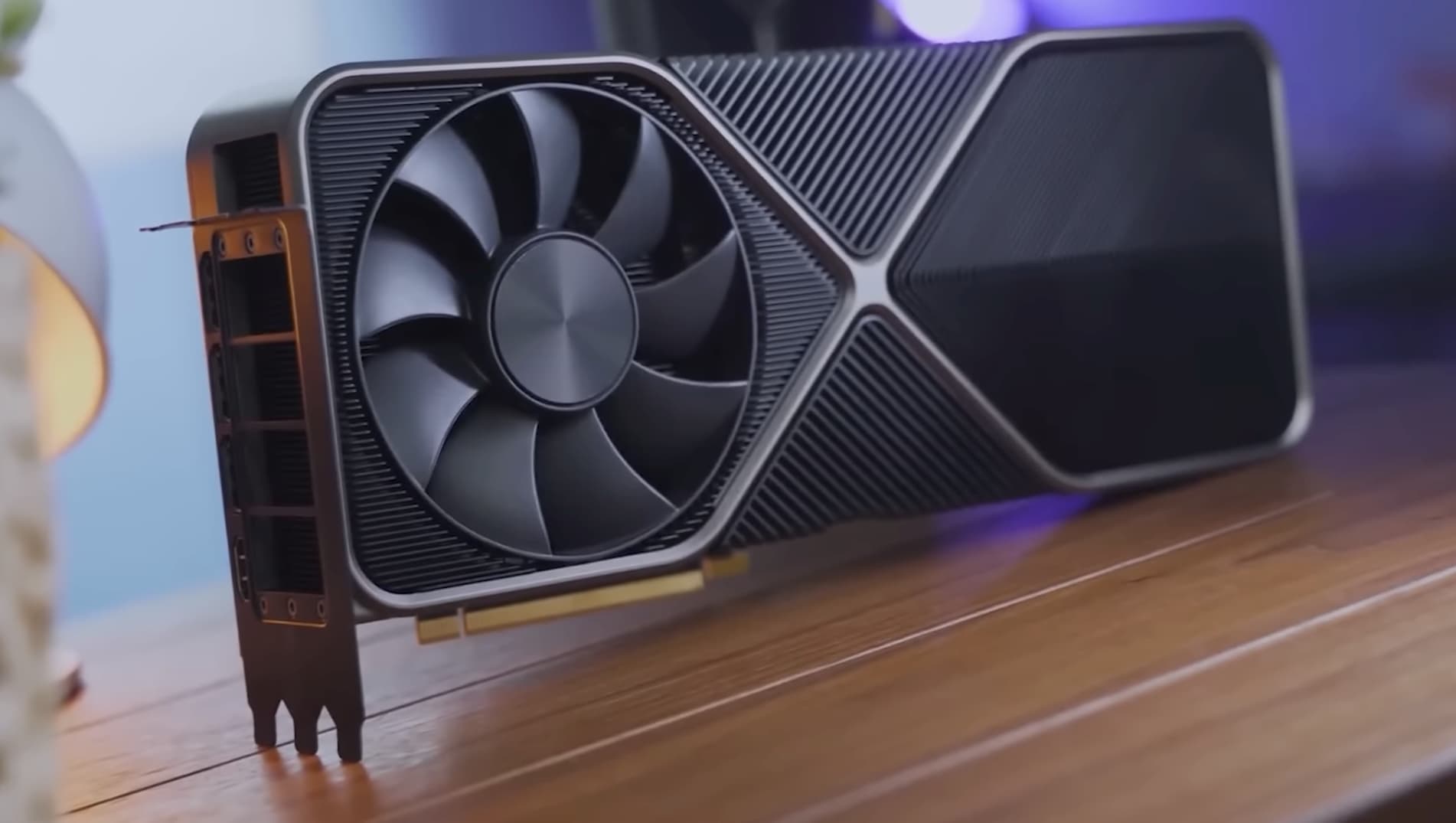
The laptop GPU market is dominated by Nvidia, who have recently released the RTX 40 series cards – but they are not yet available in laptops. The latest laptop cards are in the RTX 30 series, such as the RTX 3070 Ti.
Desktop GPUs are becoming increasingly power-hungry, so the difference between desktop graphics cards and power-limited notebook graphics has widened in the past few years. Also, Nvidia has discontinued the Max-Q label for its RTX graphics cards – meaning that an exact GPU wattage is determined by a laptop manufacturer (OEM), resulting in varying graphics performance even in laptops with the same GPU chipset.
Cubase Pro 12 doesn't require much from a laptop graphics card, so you won't need to invest in a dedicated GPU for your laptop if you're not looking for an iMac, MacBook Pro, or MacBook Air. While dedicated GPUs won't significantly improve your Cubase workflow, they can be helpful for rendering audio and video files – particularly if you use CUDA or OpenCL effects.
When deciding on a GPU, the main difference between Nvidia and AMD is that Nvidia offers the best performance, but AMD has better battery life and lower heat output. For benchmarking purposes, I recommend using 3DMark because it's a well-known benchmark with a good range of scores – however, for comparing specific models, I recommend looking at individual laptop reviews for real-world performance scenarios. Lastly, if you're looking for a laptop with top-notch graphics performance – make sure it has adequate cooling (or it'll throttle).
For budget recommendations, I would suggest the following GPUs:
| GPU | Budget |
|---|---|
| Iris Xe Graphics G7 | Minimum |
| Quadro T500 | Recommended |
| GeForce MX550 | High-end |
Cubase Pro 12 FAQ
Q: What are the system requirements for Cubase Pro 12 on a laptop?
To run Cubase Pro 12 smoothly on a laptop, you will need a capable processor, a dedicated graphics card (optional), and a sufficient amount of memory. The exact specifications depend on your usage and the level of performance you desire.
Can I run Cubase Pro 12 on a laptop?
Yes, you can run Cubase Pro 12 on a laptop. However, the performance and capabilities of the software may vary depending on the specifications of your laptop. It is recommended to meet or exceed the minimum requirements for a better user experience.
Which laptops are recommended for Cubase Pro 12?
Here are some recommended laptops for running Cubase Pro 12 at different price points:
- HP Victus ($890): This budget-friendly option offers a decent balance of performance and affordability.
- Dell G15 ($1,230): This laptop provides excellent performance for its price, making it a solid choice for most users.
- ASUS ROG Strix G15 G513RM ($1,700): If you're looking for a gaming laptop that can handle audio production, this is a great option.
- ASUS ROG Strix Scar ($2,310): This high-end laptop is equipped with top-of-the-line components for professional-grade audio production.
- Lenovo Legion Pro 7i 16 ($3,390): For the most demanding tasks and studio setups, this laptop offers exceptional performance and reliability.
How much RAM do I need for Cubase Pro 12 on a laptop?
The amount of RAM you need for Cubase Pro 12 depends on the complexity of your projects. For general usage and smaller projects, 8 GB of RAM should suffice. However, for more intensive work and larger projects, it is recommended to have at least 16 GB or even 32 GB for a smoother experience.
What processor is best for running Cubase Pro 12 on a laptop?
To ensure optimal performance with Cubase Pro 12, it is recommended to have a capable processor. Here are the recommended processors at different price points:
- Minimum: Intel Core i3-1115G4
- Medium: Intel Core i5-10310U
- Maximum: Intel Core i7-1180G7
These processors offer the necessary power to handle real-time audio processing and multi-track recording without any significant performance issues.
Is a dedicated graphics card necessary for using Cubase Pro 12 on a laptop?
While a dedicated graphics card is not essential for running Cubase Pro 12, it can provide additional benefits, especially when working with visual plugins and real-time visualizations. For optimal performance, we recommend using a laptop with a dedicated graphics card like the Quadro T500 or the GeForce MX550.
Can I use Cubase Pro 12 on a MacBook?
Yes, Cubase Pro 12 is compatible with macOS, so you can use it on a MacBook. However, make sure your MacBook meets the minimum system requirements for Cubase Pro 12 and is running a supported version of macOS. It is also advisable to check for any compatibility issues or updates from the software manufacturer.
What is the minimum storage requirement for Cubase Pro 12 on a laptop?
The minimum storage requirement for Cubase Pro 12 is 20 GB of free disk space. This space is necessary for the installation of the software and any additional content, such as sample libraries and plugins. However, it is recommended to have more storage available, especially if you plan on working with a large number of audio files or sample libraries.
Are there any specific audio interfaces recommended for Cubase Pro 12 on a laptop?
Cubase Pro 12 is compatible with a wide range of audio interfaces, so the choice ultimately depends on your specific needs and preferences. Some popular and well-regarded audio interfaces for use with Cubase Pro 12 include the Focusrite Scarlett series, PreSonus AudioBox series, and Universal Audio Apollo series. It is recommended to choose an audio interface that matches your recording needs, provides good audio quality, and has low-latency performance.
Is it possible to use Cubase Pro 12 on a touchscreen laptop?
Yes, Cubase Pro 12 can be used on a touchscreen laptop. However, it is important to note that the touchscreen functionality is not essential for using Cubase Pro 12 and may not offer significant advantages in terms of workflow or productivity. The software is primarily designed to be used with a keyboard, mouse, or MIDI controllers. Therefore, while touchscreen support is available, it should not be a deciding factor when choosing a laptop for Cubase Pro 12.
RAM Requirements
As you shop for a laptop to run Cubase Pro 12, RAM should be at the top of your list when making a purchasing decision. The amount of RAM your laptop comes with will have a huge impact on your experience when using the software.
Most mid-range laptops come with 16 GB of RAM and high-end – 32 GB or more. The latest-gen Intel and AMD CPUs support DDR4 and DDR5, though DDR5 is still quite expensive and needs time to mature as a technology.
So, how much RAM is enough to get the most out of Cubase? According to experts, 32 GB of RAM is the minimum requirement for most projects. 64 GB is ideal if you're working with multiple audio tracks, virtual instruments, and effects at the same time. That said, 8 GB will work in a pinch, though you might experience some lag.
When it comes to DDR4 vs DDR5, there's no need to get DDR5 unless you're working with high-end professional audio applications or gaming. When comparing memory sticks, you should also consider the latency (CL), frequency, and capacity.
Finally, let's look at what to expect at various price points. At the budget level (under $600), you can expect 8 GB of RAM, but for a smooth experience we recommend 16 GB. For mid-range laptops (around $1000), 16 GB is standard, and for high-end ($1500+), you can expect 32 GB or more. If you're looking for a laptop with upgradable RAM, make sure it has a free SODIMM slot.
In summary:
- Minimum: 8 GB
- Recommended: 16 GB
- High-end: 32 GB
5 Best Laptops for Cubase Pro 12
HP Victus
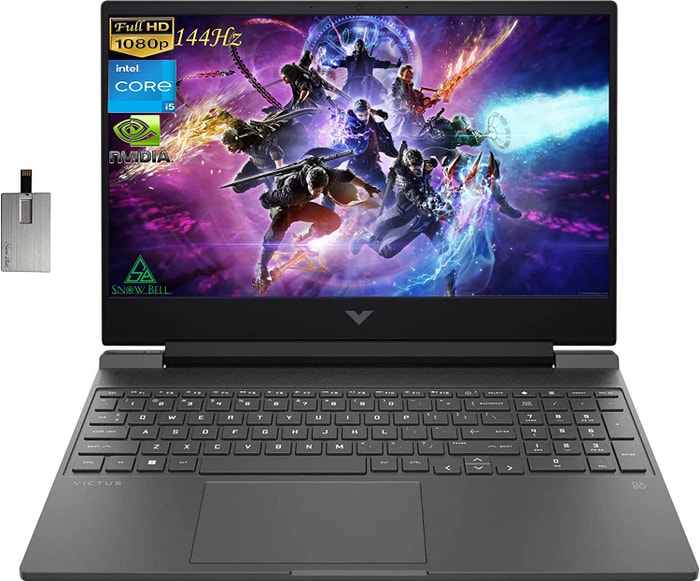
Pros and cons
- Delivers smooth gameplay at 1080p.
- Fast SSD.
- No variable refresh rate (VRR) to reduce screen tearing.
- Slow response time on the display.
Alternatives
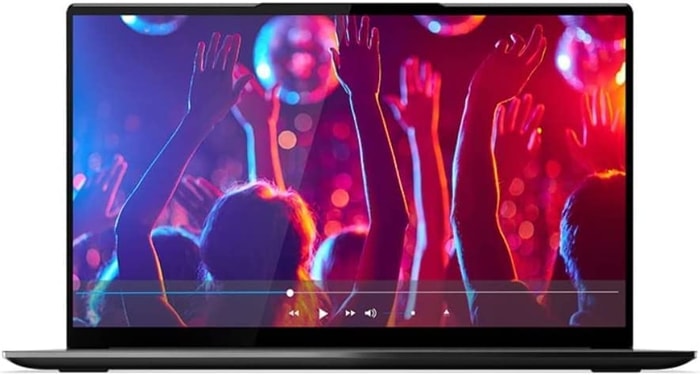
Lenovo IdeaPad Slim 9i
- Relatively bright touchscreen
- Attractive chassis design
- Turbo Boost sustainability could be better
- No integrated SD reader, USB-A, or HDMI
ASUS TUF F15 FX507VU-ES53
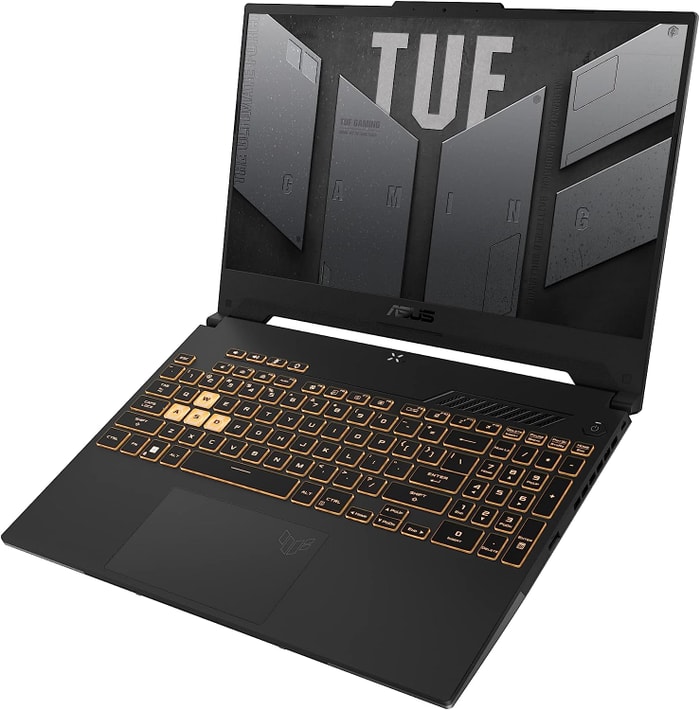
Pros and cons
- Superb 1080p gaming
- Strong productivity capabilities
- Poor webcam, touchpad, and speakers
- Some games appear washed out on display
Alternatives

Lenovo Legion 5i Pro 16
- Stylish and sleek form factor
- Gorgeous display
- Webcam quality is poor
- Lacks biometric features
ASUS ROG Strix G15

Pros and cons
- High-performance CPU and GPU
- Good workmanship and design
- Skimpy connectivity
- Coil whine in certain situations
Alternatives
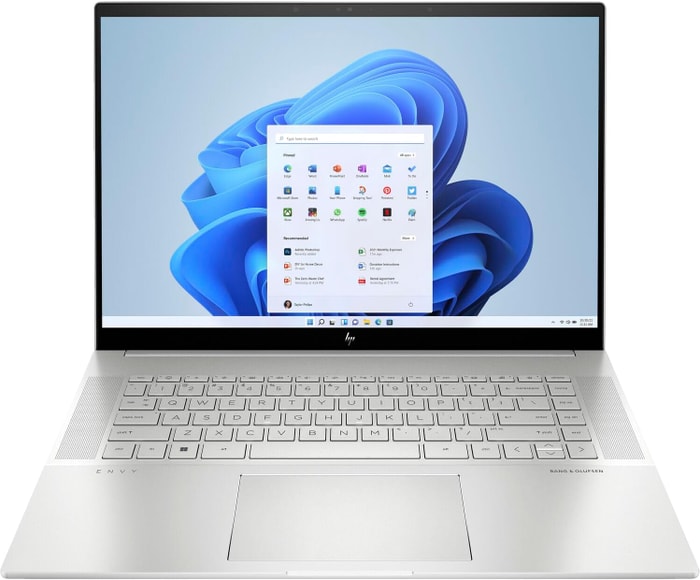
HP Envy 16
- Plenty of CPU and GPU power
- New 120Hz screen refresh rate
- Merely adequate base screen
- Optional OLED has fewer pixels than before
Lenovo Legion Pro 5
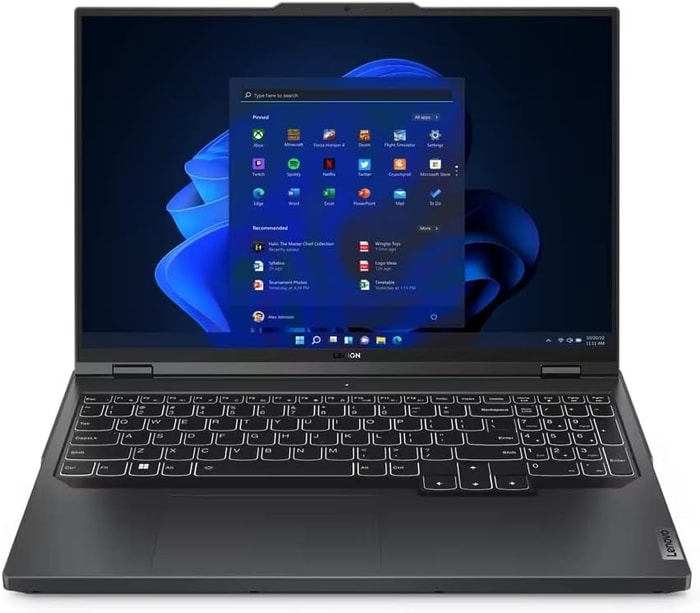
Pros and cons
- Good build quality and design
- Good screen and IO
- No Thunderbolt or biometrics
- Some hotspots under sustained loads
Alternatives
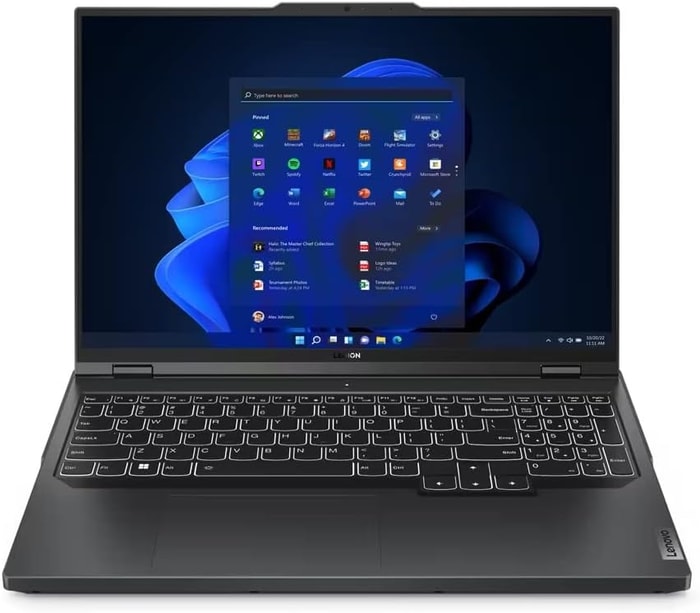
Lenovo Legion Pro 5
- Strong performance for the price
- Quality build and port selection
- Display quality and battery life are just decent
- Bulky and heavy
Lenovo Legion Pro 7i 16

Pros and cons
- Strong overall performance
- Big, bright, and fast display
- Some flex to the keyboard deck
- Poor battery life
Alternatives
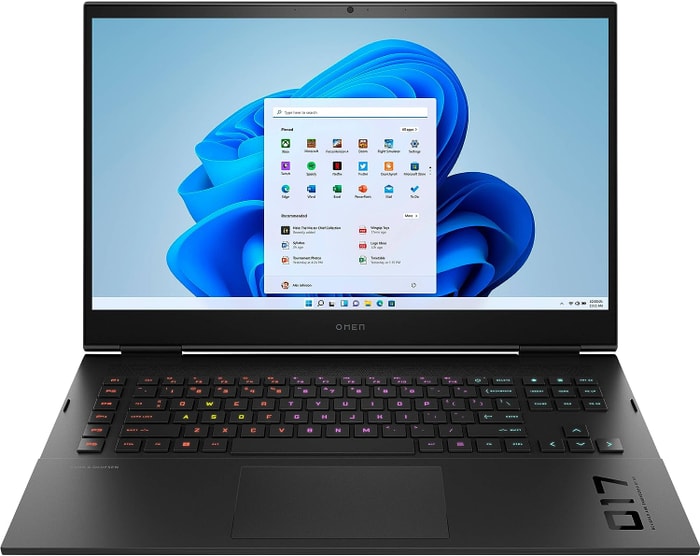
HP Omen
- Slim and portable design for a 16-inch laptop
- Midrange gaming performance at a reasonable price
- All-AMD configuration lags behind Intel and Nvidia competitors
- Unimpressive 144Hz refresh rate and full HD resolution
Table of the Best Laptops for Cubase Pro 12
| Laptop | Price (approx) |
| HP Victus | $939 |
| ASUS TUF F15 FX507VU-ES53 | $1100 |
| ASUS ROG Strix G15 | $1750 |
| Lenovo Legion Pro 5 | $2630 |
| Lenovo Legion Pro 7i 16 | $3390 |

